Working as a compliance officer can be challenging and rewarding, especially if you’re interested in helping companies avoid legal issues. To work as a compliance officer, you need to have the drive to ensure that all operations are within the law and fair business practices. This role is crucial for any organization that deals with customers directly or has employees interacting with customers regularly. This Compliance Officer Resume example will give you an idea of what you should include when creating your resume. Our sample resume contains work experience, education, skills, and more. Each team has its formatting so hiring managers can quickly find the necessary information. Before we dive into the details of this guide, let’s take a quick look at why it is so important to have an effective resume. After all, it’s your first chance to impress potential employers above anything else on your application – which means it needs to be perfect!
Compliance Officer Resume Example

Download This Compliance Officer Resume as PDF
Compliance Risk Manager Resume Example
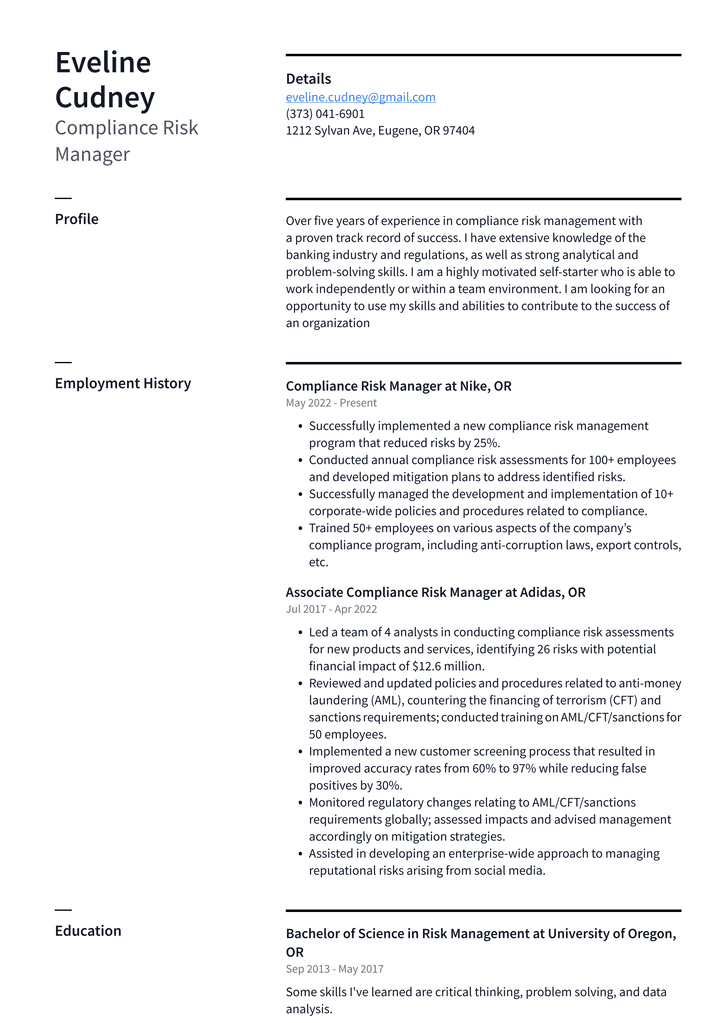
Download This Compliance Risk Manager Resume as PDF
Compliance Director Resume Example
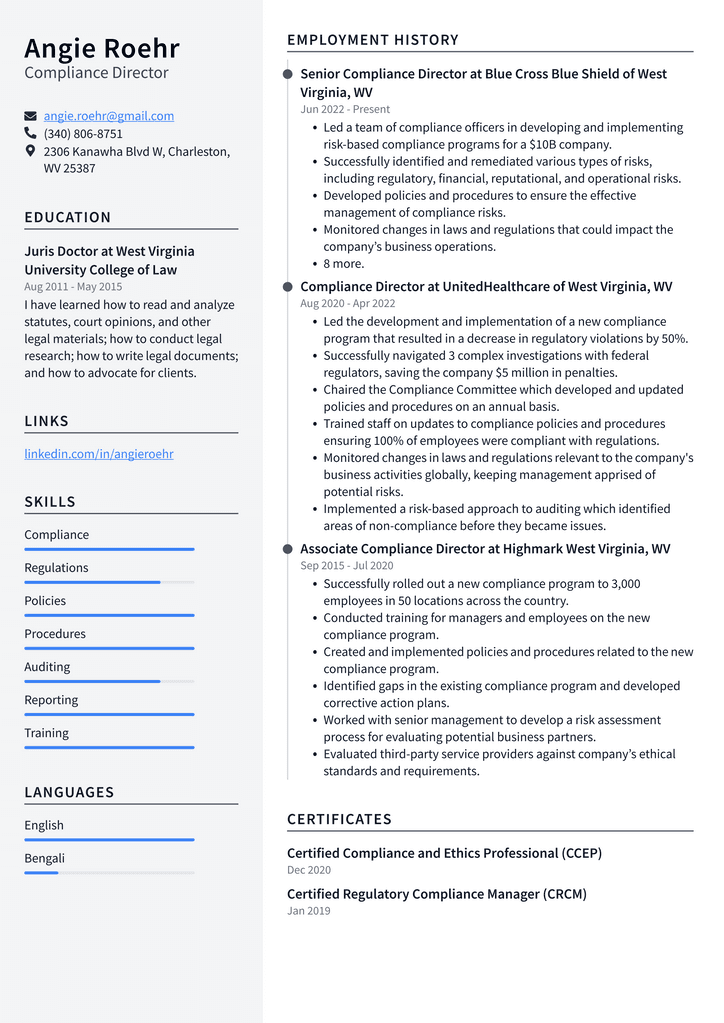
Download This Compliance Director Resume as PDF
Head of Compliance Resume Example
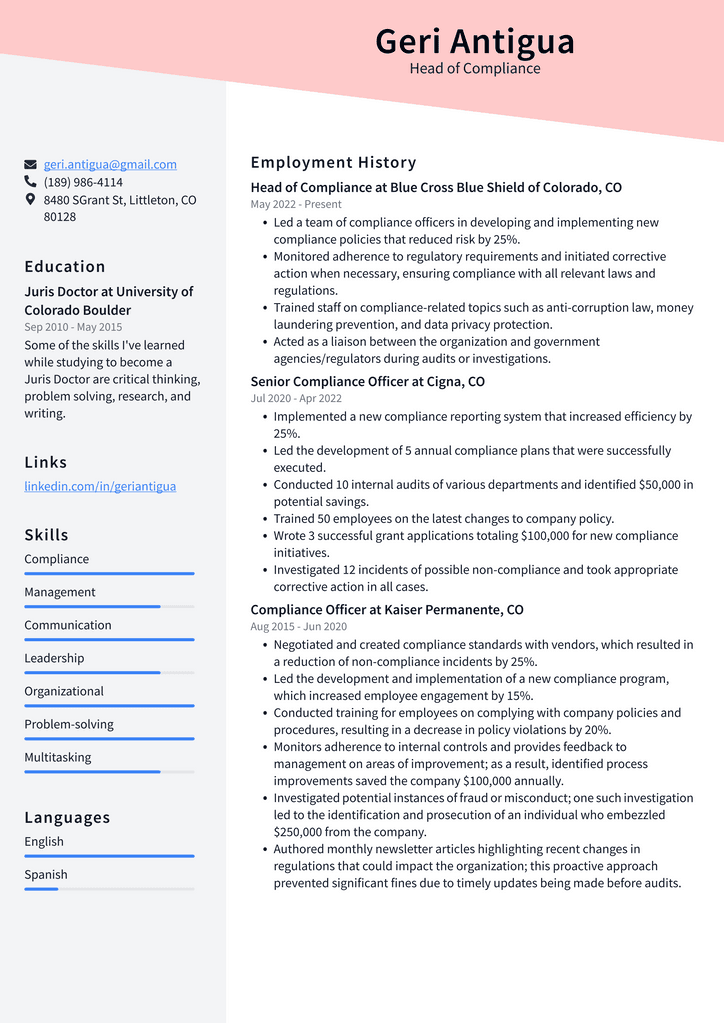
Download This Head of Compliance Resume as PDF
Compliance Manager Resume Example
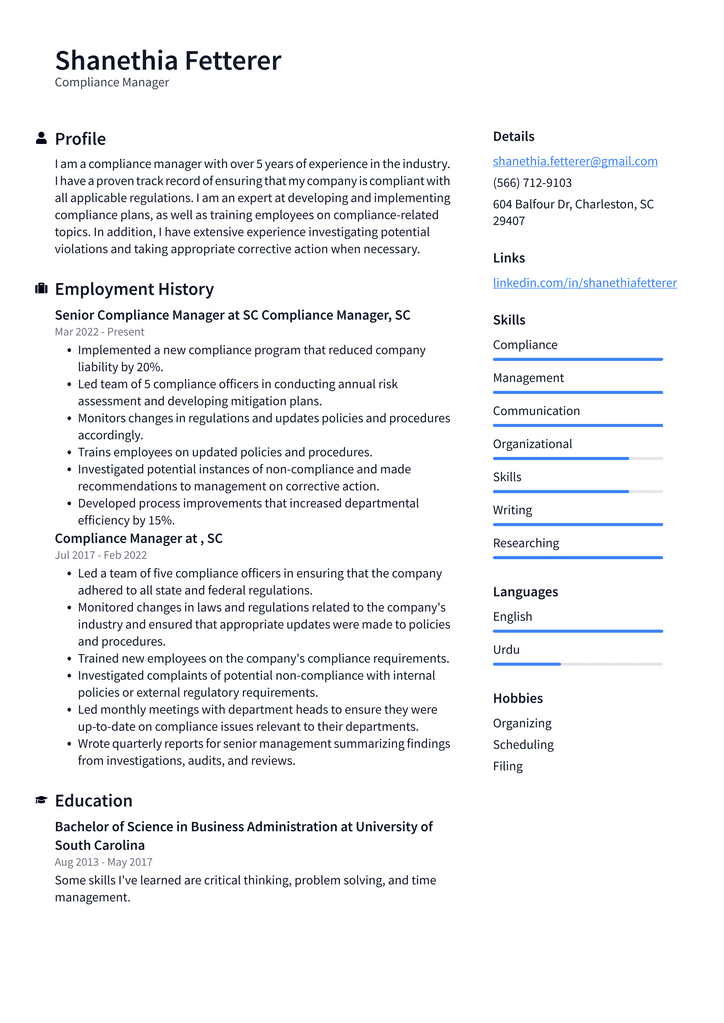
Download This Compliance Manager Resume as PDF
Chief Compliance Officer Resume Example
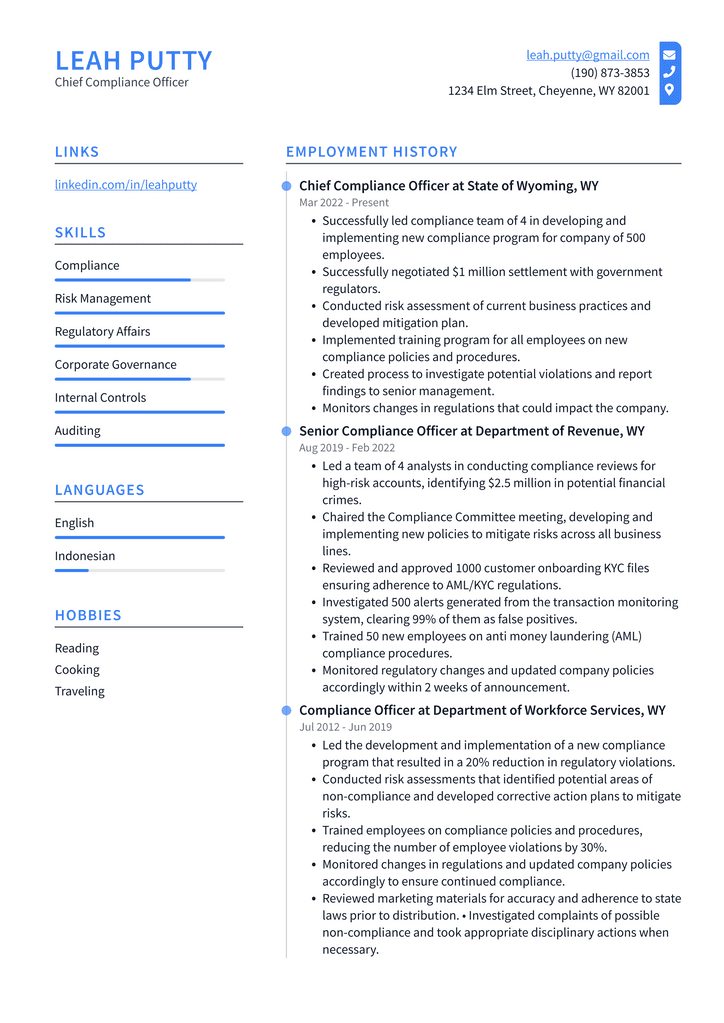
Download This Chief Compliance Officer Resume as PDF
Associate Compliance Officer Resume Example
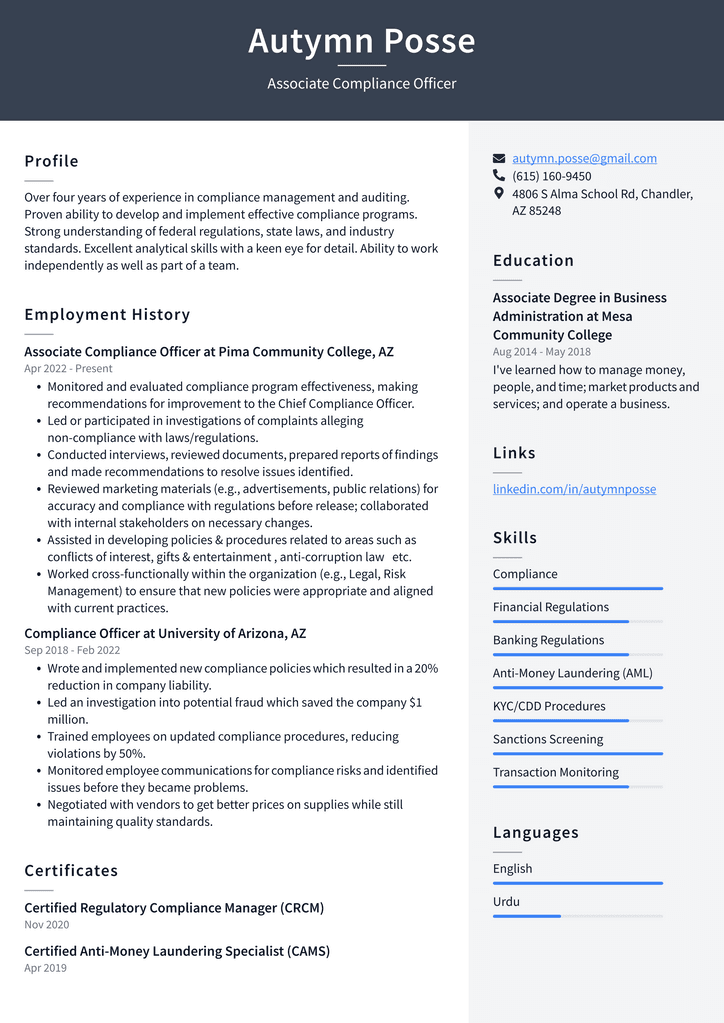
Download This Associate Compliance Officer Resume as PDF
Why Is A Resume So Important?
Before even applying for a job, you should always write a resume. It is the best way to showcase your relevant qualifications, skills, and experience from previous jobs. Your resume is the first thing an employer will look at when you apply for a job – so it’s essential to ensure it is the right fit! Your resume should be tailored to the job you are applying for. Therefore, you must highlight your skills and qualifications in an organized manner. When writing a resume, include your full name, address, phone number, and career objective. Your resume should also include education (high school, college, and any additional training) and any relevant experience you have. The best person to write your resume is you! Not only will it be tailored to your exact experience, but you will be able to express your skills and qualifications in the best manner possible. The hiring manager may glance over your resume for only a few seconds, so you must include all the relevant information.
How to Write a Compliance Officer Resume
Now that we’ve covered why resumes are so important let’s talk about how to write a compliance officer resume. This is an excellent opportunity to showcase your skills and qualifications that are relevant to the field. First, you will want to choose a format for your resume. You can choose from many forms, including the chronological resume format, functional resume format, and the combination resume format. Whichever format you choose, make sure to include the following items on your resume:
- Full Name
- Date of Birth
- Address
- Contact Information
- Education
- Work History
- Honors & Awards
- Skills
- Activities
- References
- Areas of Interest
Each of these items is critical to the success of your resume. Let’s walk through each one in detail and discuss how to write a compliance officer resume that will impress hiring managers.
Which Skills Should You Include?
In this section, you want to include skills relevant to the compliance officer job description. You can do this by highlighting skills gained through your education and previous jobs. For example, if you have a degree in business management or marketing, you might want to include skills like “hands-on experience managing a team” or “excellent written communication skills.” In general, you want skills that apply to almost any industry. That way, you can use as many job openings as possible. Some skills that you should consider including on your resume are organizational skills, public speaking skills, problem-solving skills, teamwork skills, written communication skills, and computer skills.
Which Events Should You Include?
This section is for events that are relevant to the industry. For example, if you were a member of a club related to marketing or communication, you might want to include that on your resume. You also want to have any awards or honors that are related to work. For example, if you won an award for exceptional marketing skills, you might want to include that on your resume. Likewise, if you won an award for outstanding community service, you might want to have that on your resume.
Which Activities Should You Include?
This section is for any activities that are relevant to the industry. For example, if you were a member of an organization that promotes ethics or compliance, you might want to include that on your resume. Likewise, if you were a member of an organization related to marketing or communications, you might want to have that on your resume.
Conclusion
Writing a resume is a challenging yet rewarding process. It’s the best way to showcase your relevant qualifications, skills, and experience from previous jobs. Your resume is the first thing an employer will see when applying for a job – so it’s essential to ensure it’s the right fit! Include your full name, address, phone number, and career objective. Your resume should also include education, work history, and skills. The best person to write your resume is you! Not only will it be tailored to your exact experience, but you will be able to express your skills and qualifications in the best manner possible. Remember, the hiring manager may glance over your resume for only a few seconds, so you must include all the relevant information.